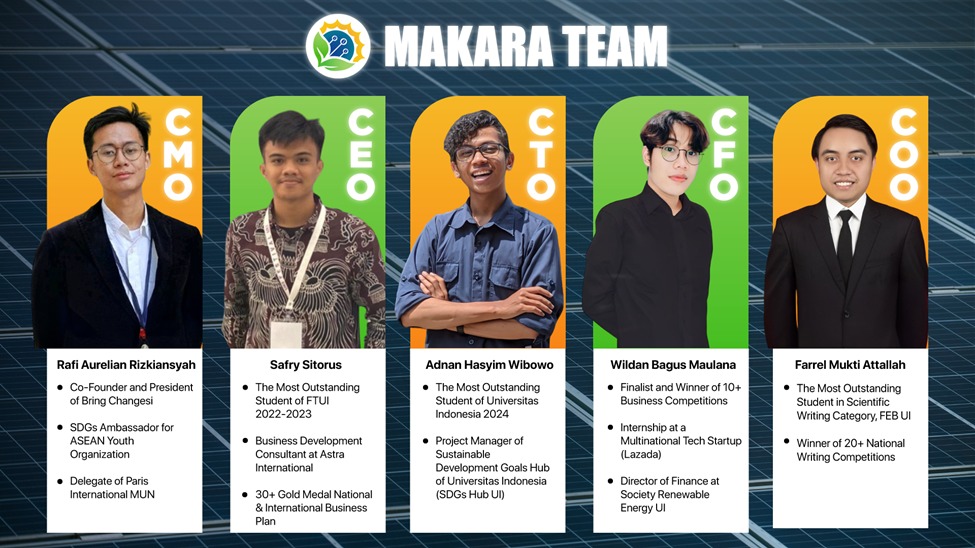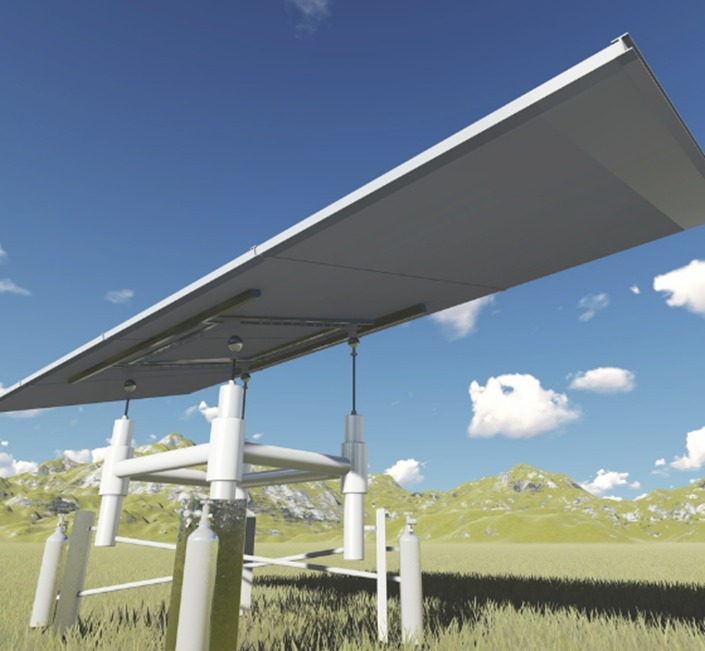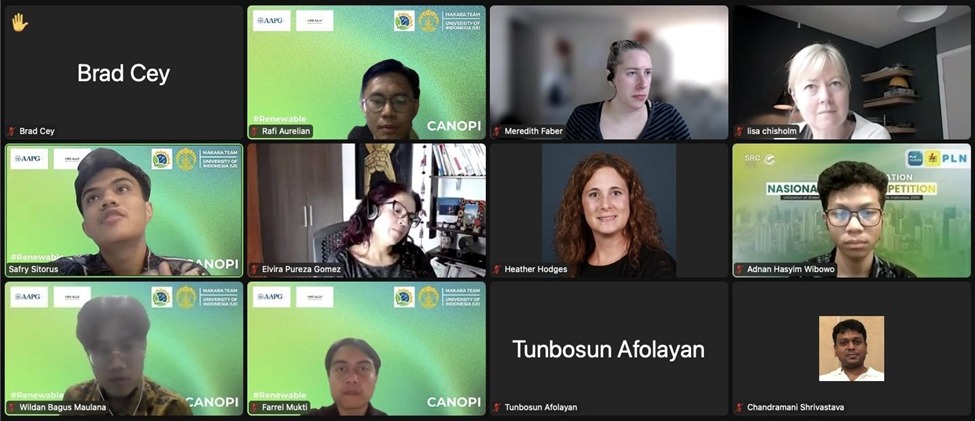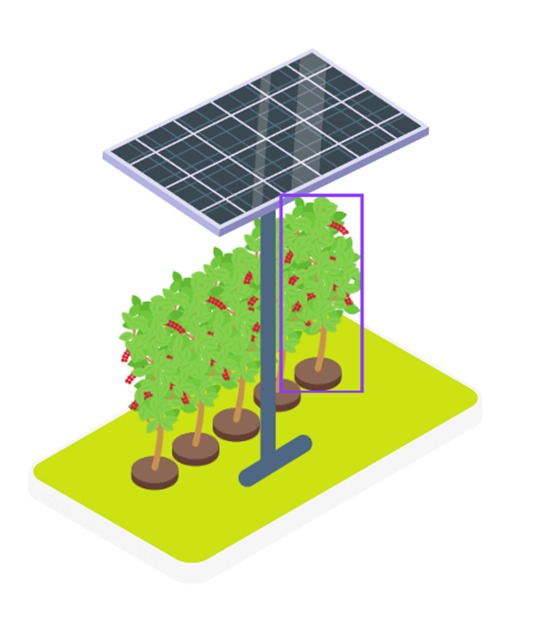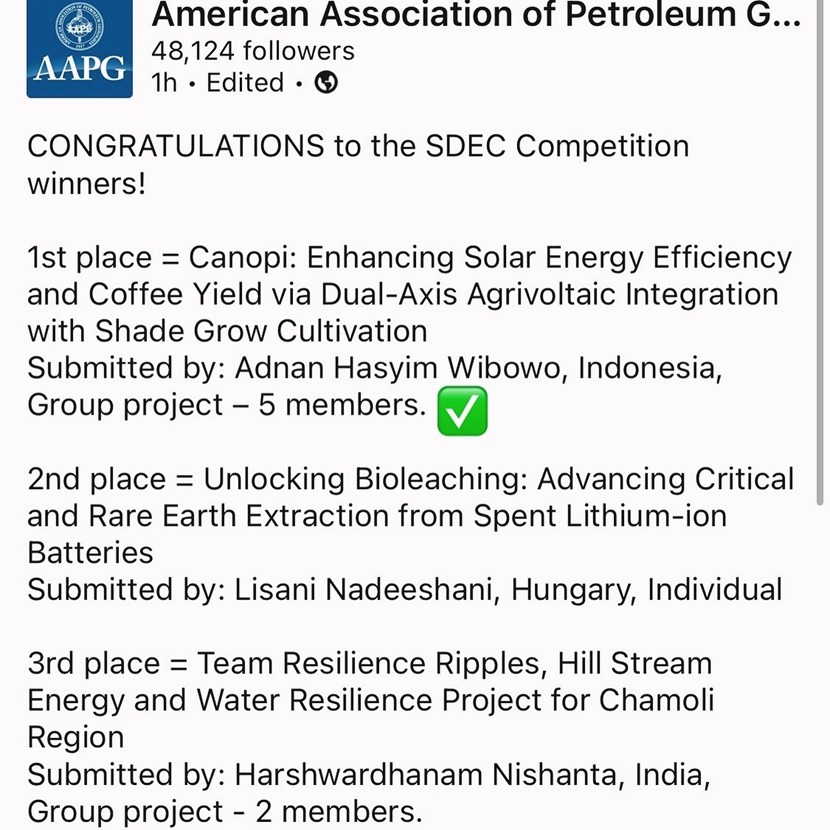Four students from Universitas Indonesia (UI): Safry Sitorus from the Faculty of Engineering (FT), Adnan Hasyim Wibowo from the Faculty of Mathematics and Natural Sciences (FMIPA), Wildan Bagus Maulana and Farrel Mukti Attallah from the Faculty of Economics and Business (FEB), and Rafi Aurelian from the Faculty of Social and Political Sciences (FISIP), have successfully won first place in the “AAPG Sustainable Development in Energy Competition 2024” organized by the American Association of Petroleum Geologists (AAPG) in Houston, Texas, USA (June 17).
The students, part of the MAKARA Team from Universitas Indonesia (UI), showcased innovative and creative solutions in renewable energy, outperforming teams from Hungary and India. The MAKARA Team’s project, titled “Canopi: Enhancing Solar Energy Efficiency and Coffee Yield via Dual-Axis Agrivoltaic Integration with Shade-Grown Cultivation,” captivated the judges with its innovative approach to increasing solar energy efficiency and coffee yield through dual-axis agrivoltaic integration with shade-grown cultivation.
The Canopi project proposed by the MAKARA Team is an eco-social business project that combines renewable energy technology with sustainable agricultural practices. In this project, they use solar panels that can move to follow the position of the sun (dual-axis) to maximize energy absorption. These solar panels are installed above coffee plantations that use shade-grown cultivation methods.
This method enhances solar energy absorption efficiency and benefits the coffee plants growing beneath them. Coffee plants cultivated using shade-grown methods tend to have better quality and greater resilience to climate change. Additionally, this agrivoltaic integration helps reduce water evaporation from the soil, improving water use efficiency in agriculture.
Safry Sitorus, the leader of the MAKARA Team, expressed his pride and gratitude for this achievement. “This victory is tangible proof that Indonesia has great potential in the field of renewable energy. We hope that the Canopi project can have a positive impact on society and inspire young generations to keep innovating for a sustainable future,” said Safry.
Support from the university, faculty advisors, and all related parties played a crucial role in the success of the MAKARA Team. “We received incredible guidance and support from our lecturers and the university. They helped us at every stage of the project’s development, from initial research to the final presentation at the competition,” said Adnan Hasyim.
The Dean of FTUI, Prof. Dr. Ir. Heri Hermansyah, S.T., M.Eng., IPU, stated, “The ‘Canopi’ project not only demonstrates strong technical capabilities but also creativity and innovation in seeking solutions for global challenges in renewable energy and sustainable agriculture.”
Furthermore, Prof. Heri highlighted that the approach used in this project is highly relevant and has great potential for widespread application. “The dual-axis agrivoltaic integration with coffee cultivation conducted by the MAKARA Team shows that we can leverage technology to enhance solar energy efficiency while also boosting crop yields. This is a concrete example of how innovation can provide dual benefits for the environment and the agricultural sector.”
This year’s annual AAPG competition was held online from Houston, involving participants from students and young professionals worldwide. The competition not only served as a platform to showcase technical skills and innovations but also as an opportunity to share knowledge and learn from other participants who share the same vision for a better energy future.
***
Public Communication Office
Faculty of Engineering, Universitas Indonesia

